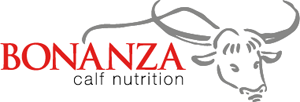Choosing a rearing system for orphan and multiple lambs that matches labour availability and numbers in combination with providing the right nutrition is key to success.
Systems range from hand rearing to automatic feeders but all rely on a feed that allows lambs to thrive.
“Hand rearing pet lambs requires a higher degree of labour and effort compared to a ewe who rears her own lambs but there are different rearing options available, depending on the amount of labour available and of course the amount of pet lambs on the ground,’’ explains Dr Amanda Dunn, of Bonanza Calf Nutrition.
If cross-fostering lambs is not feasible, a replacer made from ewe’s milk is the safest and most natural feed once lambs have received adequate colostrum – 50ml colostrum per kilogram of bodyweight every six hours during the first 24 hours.
Shine Ewe-reka, manufactured by Bonanza Calf Nutrition, contains antibodies from ewe’s milk which are specific to common lamb diseases in early life.
“Lambs love it because it tastes and smells just like their own mother’s milk, which encourages a stronger drinking reflex,’’ says Dr Dunn.
Ewe-reka contains five vegetable oils – coconut, linseed, rape, soya, and palm – and plant extracts to minimise clostridia bloat and scour in young lambs.
Ewe-reka replacer is mixed at 20% solids dry matter to mirror the solids level in ewe milk.
“Ewe-reka can be mixed up warm or cold and is suitable for all feeding systems,’’ says Dr Dunn.
A lamb thrives best when fed little and often – three to four times a day during the first few weeks of life.
“If bottle feeding, this is going to be somewhat restrictive in the amount of milk than can be fed in one feed and it also quite time consuming especially if there are lots of lambs,’’ says Dr Dunn.
Cold ad lib feeding is a very simple and low cost and yet an effective way to feed pet lambs, she adds.
“A bucket, one or two teat lines and a non-return valve is the only equipment needed for this system to operate. It requires minimal labour and lambs have 24/7 access to milk.’’
It is best practice to train the new lambs on lukewarm milk. “It is important to spend some time with the lamb for the first few days to ensure it has found the teat and suckled adequate volumes of milk three to four times a day,’’ Dr Dunn advises.
“Generally, if there are already older lambs in the pen then the younger lambs will learn much quicker and not require as much training.’’
Lambs can achieve liveweight gains of 300g/day on this system and can be finished at 100 days on ad-lib concentrates.
Dr Dunn says there are pitfalls to avoid.
“Never let the milk supply run out as this can result in the lambs gorging too much milk when the bucket is refilled and this can cause bloat and other digestive upsets.
“Keep tubes clean and flushed out regularly – don’t allow build-up to occur as this can encourage bacteria to grow.
“At the beginning, when lambs are young, only mix up enough milk for that day to avoid milk sitting for long periods.’’
Consistency is extremely important when feeding pet lambs, she adds. “They thrive on uniformity so mix milk at exactly the same concentration as previous feeds, at the same temperature, the same volume and to the same sanitary hygiene practices.’’
In larger flocks with many surplus lambs, automatic feeders are commonly used.
“Again, Ewe-reka is ideally suited to this method of feeding and lambs can achieve high levels of performance,’’ says Dr Dunn.
Recent trials have shown average weight gains of 550g/day from 0-8 weeks of age when lambs are fed Ewe-reka on an automatic ad-lib feeding system alongside water, creep and forage.
“These results have proven better than twin lamb weights reared on their own mother,’’ Dr Dunn points out.
It costs approximately €45 to rear a pet lamb to 21kg deadweight, an additional €20-25 if lambs are purchased.
“This cost takes into account the milk replacer, concentrates, straw and miscellaneous,’’ says Dr Dunn.
“At a price of €4.80/kg these lambs would be selling for approximately €100/lamb sold, leaving a profit margin of €55/lamb.’’
Ewe-reka is available in different pack sizes – 5kg buckets and 10kg and 20kg bags. It will take approximately 13kg of Ewe-reka powder to rear a pet lamb.
In addition to Ewe-reka, lambs should also be offered clean water, fresh creep feed and forage.
Lambs fed ad lib milk should be at least 35 days and 15kg and thriving before they are weaned.
Ideally, they should be eating at least 200g of high crude protein concentrate for three consecutive days before weaning – this ensures there is no risk of a growth check.
Contact us
Bonanza Calf Nutrition
Producers of the renowned Shine range of milk replacers for calves and lambs.
© 2017 Bonanza Calf Nutrition Ltd.
FIND US
